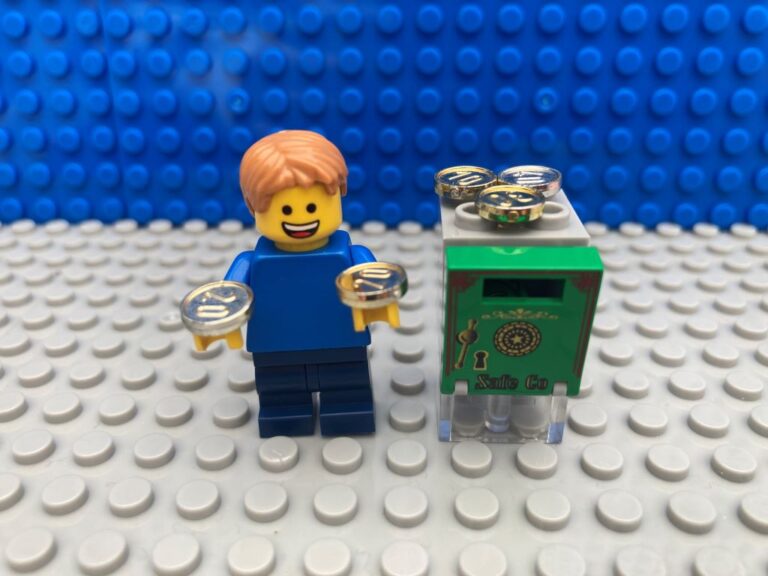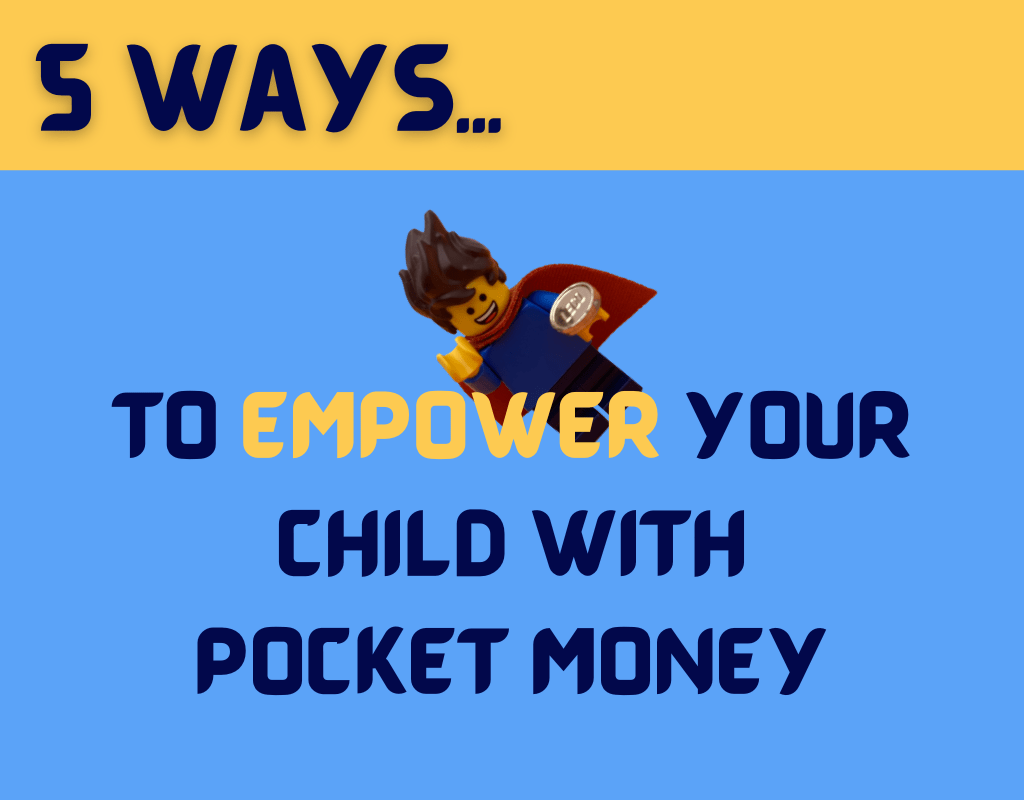Every parent wants their child to learn good financial habits. From spending to saving, pocket money is a great way to start them on their journey to financial independence. And building a positive yet simple conversation regarding saving and spending habits is vital to laying a good foundation for their future financial journey. Here are our tips to keeping pocket money simple yet effective…
The Practical, Financial and Emotional Importance of Pocket Money
1. Keeping Pocket Money Simple
As parents, we often like to over-complicate things. We have big things we want to teach our kids, from regulating their feelings, relationships to self-care (physical and emotional) and finance. We have a big job and it’s easy to become overwhelmed and try and teach them everything all at once. That happens a lot around money habits because it’s a big topic.
So, I’m going to focus on the three basic money habits that every child needs to learn. This is especially useful for younger children who are just starting out on their pocket money journey. It takes out some of the bigger money topics like earning a wage, loans and bills, leaving them for a later date when children have had the time and space to experience the basics.

2. Practise Spending
My first lesson of pocket money is teaching children the practicality of actually spending money. To teach them how to go to a shop, choose an item, have enough money for it and go through the motions of making the purchase. This may sound simple, but in days where money is becoming more and more invisible, it’s an important step.
As well as grasping the intricacies of cash (which is becoming less and less part of everyday life), children can now use cards (through pocket money apps) to make purchases. They need to learn about pin numbers and contactless payments.
And there is the added complication of online shopping and how easy and accessible that is. We need to teach our children about using all of these different ways to shop. To spend.
They need to be able to experience making these small purchases, they need to be able to get it wrong and regret buying that toy or that chocolate bar – when it doesn’t matter. They need to feel the power of being able to pay for things themselves.
They need to be able to practise spending safely, with guidance and supervision so they can build their confidence and grow their ability to make wise spending decisions.

3. Practise Saving
By enabling our children to have a safe space to spend, we are naturally creating a space for them to save. We limit the amount of pocket money we give our children each month so if they want anything bigger than a packet of sweets, they are going to have to save up for it.
It grows the conversation around how much they want a specific toy or game. How long they are going to have to wait for it. Whether they will still want it when they can actually afford it. We do not loan them money or give into the temptation to buy it for them, as we do not want to muddle the money lesson.
It is a vital skill to be able to resist the temptation to spend because you are saving for something else. To commit to your savings goal and then be able to achieve it. So, encourage your children to save as well as spend. Encourage them to set themselves a goal or a target – and stick to it.
And be a sympathetic ear if it all goes wrong. Because we’ve all done it.

4. Practise Giving
This might seem like an odd pocket money lesson to add in at the beginning, before learning about wages, loans, bills and all the financial outgoings that adults have to contend with. But I believe giving money towards good causes is a vital concept to introduce to our children.
By giving them a safe space to evaluate ‘good’ causes and charities, we can open up the conversation about financial generosity. We can offer financial support to our friends and families as they raise money for charities that are close to their hearts. What a privilege to introduce our children to the experience of giving and supporting something worthwhile.
And it’s also vital to remember that it opens the door to discuss financial scams and cons. Money scams are everywhere and its very likely that they will experience it before they are even fully grown up. So, get them prepared.

5. Share Your Story
Not everyone likes or feels comfortable talking about money. And from experience, giving my children some financial independence has led to a lot more questions about how I manage my own money. But maybe we need to let down our guard a little bit with our children. To let them in enough to show them positive and wise financial decisions. Remember you are their first financial advisor.
Pocket Money Stories and much more...
You can catch up with our Pocket Money stories here or head over to our Blog page for more stories and advice on the everyday of parenting.
DISCLAIMER: The Lego Group of Companies does not sponsor, authorise or endorse this site.

